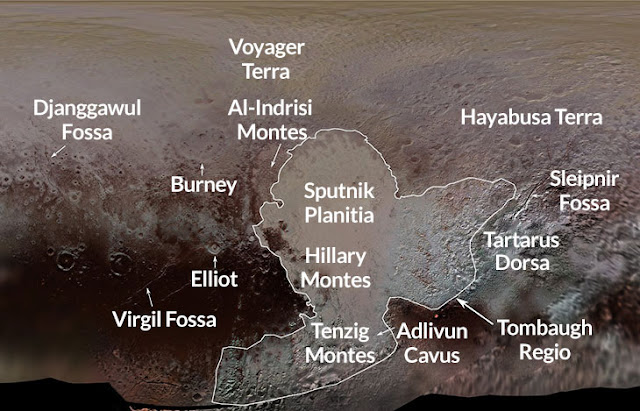Pluto’s pits, ridges and famous plain get official names
Objects in the Pluto system are traditionally named for figures in underworld mythologies, so some features stick to that theme. Sleipnir Fossa is a long, narrow depression named for the eight-legged horse that carried the Norse god Odin to the underworld. Adlivun Cavus is a pit named for the Inuit underworld. And Tartarus Dorsa is a raised ridge ironically named for the deepest, darkest pit in the Greek underworld.
Other names recall human and robotic explorers, like the first people to successfully climb Mount Everest and the Voyager spacecraft.
Some features, like Sputnik Planitia and Tombaugh Regio, kept the names that the New Horizons team have been using informally. Sputnik was the first space satellite, launched by the Soviet Union in 1957, and Clyde Tombaugh was the American astronomer who discovered Pluto in 1930.
Names for the features on Charon and Pluto’s other moons are still to come. That means there’s hope that the big red splotch that dominates Charon’s north pole can keep its evocative Lord of the Rings‒derived name: Mordor.
 |
| WHAT’S WHERE Features on Pluto’s surface, as seen by the New Horizons spacecraft in 2015, are marked with their new names. |
Posted By ZaptaiLo.BlogSpot.Com









Post a Comment